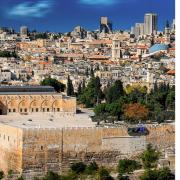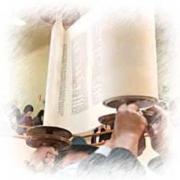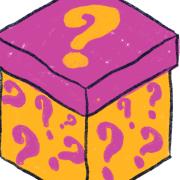The Challenge of Unity
The Parashat Shelach opens with interesting words: Shelach Lecha Anashim. Rashi and many commentators translate it as "Send for yourself," meaning, "Hashem has said that the Land is good, so just go in and take the land," but that generation wanted to see it for themselves, kind of like they wanted to make sure it was a good land.
It seems to me that there's another meaning behind these words. With your permission, let's look at it closely.
So, the Shelach Lecha means "Send for yourself", but if you pay close attention, Lecha is in the singular tense, but it is directed to Moshe and affects 12 people, who are being sent out on this expedition. So, how is the singular tense being used for this group of people? Why not just use the plural?
In Parashat Bereshit, right after Chava and Adam ate from the Tree of Knowledge, and after Hashem had punished them, it says that Hashem banished them from Gan Eden. It uses an interesting word for it; in Bereshit 3:23, it says: וַֽיְשַׁלְּחֵ֛הוּ - Vayeshalkhehu - And Hashem banished him or sent him out from Gan Eden... Sent him out? Why him? Weren't two people sent out from the Garden of Eden - Adam and Eve? Why does Hashem only refer to Adam-"sent him out"? I believe this is where Hashem is giving us an important message: that Adam and Eve are one, a union, a single entity—a Father and a Mother of all of humanity—the Parents.
But let's go further into the Parashat Lech Lecha. When Hashem tells Avraham Avinu, "Lech Lecha—Go for yourself from your land..." Again, in this case, the word Lecha is used, affecting many people who came out with Avraham Avinu—his wife Sarah, his nephew Lot, all the souls they had made in Haran, and their shepherds.
We have three instances in which the singular tense was used, affecting the group "the many". This teaches us that Hashem wants a group to achieve unity and stay together as a group on their journey, getting from point A to point B as one single entity, with no one left behind.
But it doesn't happen so.
Later, in Parashat Lech Lecha 13:5-12, we are told how the shepherds argued, and Avraham Avinu offered Lot the option to go left while he went right, or right while he went left, and Lot agreed. They both went different ways—but as you remember, Hashem said 'Lech Lecha,' which means that Hashem wanted him to go as one single unit, without separation; thus, the word 'Lecha' is used.
Back then, Avraham Avinu, Sarah Imenu, and Lot were the Jewish nation, and Hashem wanted them to stay together and reach the Point B —the Promised Land —which unfortunately did not happen.
The Parashat Toldot tells us about Yitzchak Avinu and his two sons, Esav and Yaakov. Yaakov gets the birthright and the blessing, and Rivkah Imenu, worried about Yaakov's safety, tells him to leave for Charan since his brother Esav might kill him. Yakov leaves, and the family breaks up—the unity is lost once again.
The Parashat Vayishlach tells us that 22 years later, Yaakov Avinu returns from his father-in-law's house with his family: four wives, twelve sons, and a daughter, Dina. Knowing fully well his brother Esav, Yaakov Avinu hides his daughter in the chest so Esav does not see her. When the brothers meet, Esav never sees Dina, and they go their separate ways. The Sages tell us that Yaakov Avinu made a mistake by hiding Dina. Dina should have married Esav—since only she could have brought him back to Teshuva. And then Yaakov, with his kids and four wives, and Esav, with Dina, would have returned to Israel together as one unit—but it didn't happen. The family has broken up once again, Esav went totally off the derech, and billions of his descendants were forever lost to Judaism.
In Parashat Vayeshev, the nation of Israel is now Yaakov Avinu and his twelve sons. Everything seems to be going well, but suddenly, there's a conflict between the brothers and the younger one, Yosef. So, the brothers end up selling him to Egypt, which breaks the family once again. Later, the whole family moves to Egypt to join Yosef due to the famine in the Land of Israel.
Years later, Moshe Rabbenu appears in Parashat Shemot. He is sent by Hashem, who tells him to take His nation out. Three million people came out with Moshe Rabbenu after all the punishments G-d brought upon Egypt.
And in Parashat Yitro, we finally got it—the nation stood as one body and soul—we have achieved complete unity. The Jewish Nation received the Torah on Mount Sinai and officially married G-d.
Then, the nation traveled closer to the Land of Israel, and suddenly, in Parashat Shelach, the people approached Moshe Rabbenu. They wanted to scout out the land, but in reality, they sought to achieve what Avraham Avinu, Yaakov Avinu, and the brothers had been unable to attain: unity. The twelve spies wanted to go to the Land of Israel and return with a unified opinion on the strategy and goodness of the Land. But, as you know, for whatever reason, they came back with ten people’s opinions versus two people’s opinions. Hashem did what He did - males of that generation, 20-60 years old, lost their lives in the desert.
Thirty-nine years later, in the Parashat Matot and Masei, when the nation was standing on the banks of the Jordan River, the tribes of Reuven, Gad, and part of the tribe of Menashe approached Moshe Rabbenu and asked to remain in the east of the Jordan due to an abundance of green pastures for their livestock. Moshe agreed, and in return, they promised to help other tribes conquer Eretz Yisrael.
And this is where I believe a mistake was made...
The word Lecha in the Lech Lecha or Shelach Lecha does not only mean Go or Send for Yourself, but it means to go from point A, which is Egypt, to point B - Eretz Yisrael - as one unit, a single entity - all 3 million people, all 12 tribes with no one left behind or anyone left outside of The Land of Israel. This is where Hashem is telling Moshe Rabbeinu — or obligating him — to ensure that all 12 tribes make it to the Land of Israel, no matter how appealing it may look outside it.
If they had done so, Moshe Rabbenu would have passed away, but Yehoshua Bin Nun would have taken the nation into the Land of Israel. He would have become a Mashiach ben Yosef, and then the Mashiach ben David would have been found in the nation. The Geulah or Redemption would have started at that moment, followed by the Tehiyat Hametim - the Resurrection of the Dead, where Moshe Rabbeinu and everyone left behind in the desert would have come back to join the rest of the nation in the Land of Israel.
But this did not happen. And because of this, we have had our First Bet Hamikdash and its destruction, Second Bet Hamikdash and its destruction, and today, this.... current long exile with all its hardships - still going on for almost 2,000 years. However, we remain hopeful and are waiting for our own Lecha Moment—Mashiach, who will unite us and gather all 12 tribes together in Israel, and initiate the prophecies as written in the Book of the Prophet Isaiah and the books of other prophets.
Just like Adam and Chava were sent out from the Garden of Eden as one entity, so are we—all 12 tribes of Israel—have to re-enter our physical Garden of Eden—The Land of Israel—as one, united and strong nation.
May this happen speedily in our days. Amen.
Shmuel Katanov














